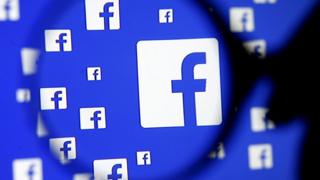 Image copyright
Image copyright
Reuters
Facebook says it will treat all posts by politicians as “newsworthy content” that should “be seen and heard”.
The company said politicians would be exempt from its fact-checking scheme which is designed to reduce the spread of fake news and misinformation.
It said it did not want to be the “referee” in political debates or prevent politicians’ posts from reaching their intended audience.
However, it did not define who it counted as a politician.
On Tuesday, Facebook’s vice president of communications – the former Liberal Democrat leader Sir Nick Clegg – gave a speech in Washington DC.
He said the company had “made mistakes in 2016” and said Russia had tried to use Facebook to interfere with the US presidential election.
He insisted the company had taken steps to prevent it happening again.
Facebook uses independent third-party fact-checking organisations to help identity fake news, misleading claims and misinformation.
However, it said posts made by politicians would not be fact-checked.
Sir Nick also said Facebook would let politicians post content that breaks its rules on topics such as hate speech, as long as they did not pose a significant “risk of harm”.
Image copyright
PA Media
Facebook’s VP of communications Sir Nick Clegg gave a speech on Tuesday
But advertisements on Facebook must still abide by the rules.
Sir Nick said Facebook’s role was to “make sure there is a level playing field, not to be a political participant ourselves”.
The BBC asked the company who it would consider to be a “politician”.
The social network said it did not put “strict parameters” on its definition of a politician because of global differences.
However, it told the BBC that the anti-Islam activist Tommy Robinson would remain banned, even though he stood as a candidate in the European elections in May.
It said he had been banned under the site’s “dangerous organisations and individuals” policy, and that the ban would remain in place.
In the same speech given by Sir Nick on Tuesday, he urged politicians not to break up Facebook into smaller companies.